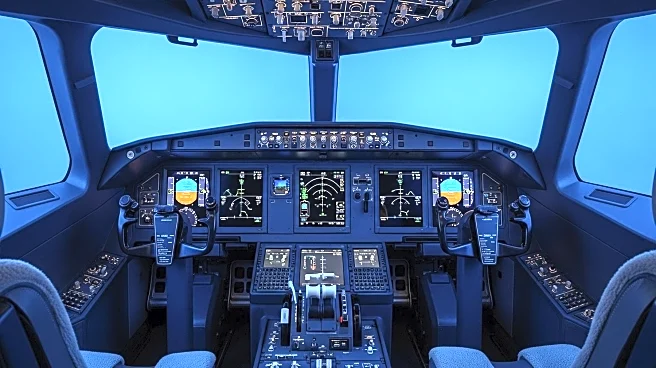What's Happening?
TTTECH Aerospace has announced that its TTEthernet End System solution has been selected by Honeywell for integration into its next-generation flight management system (nFMS) for air transport platforms. This system acts as the 'brain' of modern airliners, responsible for navigation, performance calculations, and guiding aircraft efficiently along planned routes. TTTECH's technology supports Honeywell's requirements for modularity, upgradeability, and reliable data networking, enhancing operational efficiency, safety, and compatibility with future aircraft. The TTEthernet technology is already in service on aircraft such as the Airbus A220, Boeing 787, and Embraer C-390.
Why It's Important?
The integration of TTTECH Aerospace's technology into Honeywell's nFMS is significant for the aviation industry as it promises improved operational efficiency and safety for air transport platforms. By using open networking standards, the system ensures broad compatibility with current and future aircraft programs, which is crucial for the evolving needs of the aviation sector. This collaboration highlights the importance of reliable data transfer systems in enhancing the performance and safety of modern airliners, potentially setting new standards for flight management systems.
What's Next?
TTTECH Aerospace and Honeywell have a longstanding partnership, and this latest integration may lead to further collaborations in the future. As the aviation industry continues to evolve, the demand for advanced flight management systems will likely increase, prompting further innovations and upgrades. Stakeholders in the aviation sector, including airlines and aircraft manufacturers, may look to adopt similar technologies to enhance their fleet's capabilities.
Beyond the Headlines
The collaboration between TTTECH Aerospace and Honeywell underscores the growing importance of data networking solutions in aviation. As air travel becomes more complex, the need for systems that can handle large volumes of data efficiently and safely is paramount. This development may also influence regulatory standards and industry practices, pushing for more robust and adaptable flight management systems.









